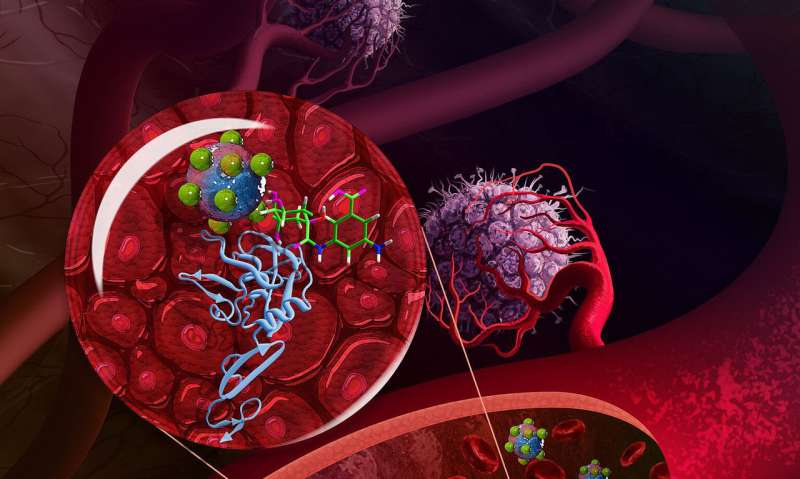Targeted delivery: Cancer identity technology makes it easier to find a tumor's 'address'

Purdue University researchers have developed a technology aimed at making it easier to deliver cancer treatment to the right "address" in the body while also easing the painful side effects of chemotherapy on patients.
One of the big issues with chemotherapy is that most treatment approaches focus on the tumor itself without paying significant attention to the microenvironment surrounding the tumor. The new method is detailed in the nanotechnology journal Small.
"The traditional approach is similar to a delivery driver trying to drop off a package to a certain person without knowing their specific address," said Yoon Yeo, a professor of industrial and physical pharmacy at Purdue, who is leading the research team. "Our new approach provides directions to find the specific address to deliver the chemotherapeutic drugs."
The Centers for Disease Control and Prevention reports that each year, about 650,000 cancer patients receive chemotherapy in an outpatient oncology clinic in the United States. Patients receiving chemotherapy are at risk for various side effects that may lead to hospitalization, disruptions in chemotherapy schedules, and even death.
The Purdue method uses nanoparticles, which are considered promising carriers of drugs needed for chemotherapy to target tumors. The researchers developed a technique to prepare polyol-modified nanoparticles so they locate cancerous cells and tumors by checking out blood vessels surrounding the tumors.
The nanoparticles then interact with the vascular lining to enter tumors and destroy them. The Purdue researchers said their method helps the nanoparticles to exit from the circulation and enter tumors and better treat the cancer. They have tested the method on breast cancer and melanoma models and believe it also will prove effective for many types of cancerous tumors.
"Chemotherapy can be almost unbearable for most patients and we want to change that," Yeo said. "Our method better targets tumors so lower dosages are required and the drugs do less damage to normal tissues."
The technology is patented through the Purdue Office of Technology Commercialization, and the research team is looking for partners.
More information: Jun Xu et al, Quinic Acid-Conjugated Nanoparticles Enhance Drug Delivery to Solid Tumors via Interactions with Endothelial Selectins, Small (2018). DOI: 10.1002/smll.201803601
Journal information: Small
Provided by Purdue University





















